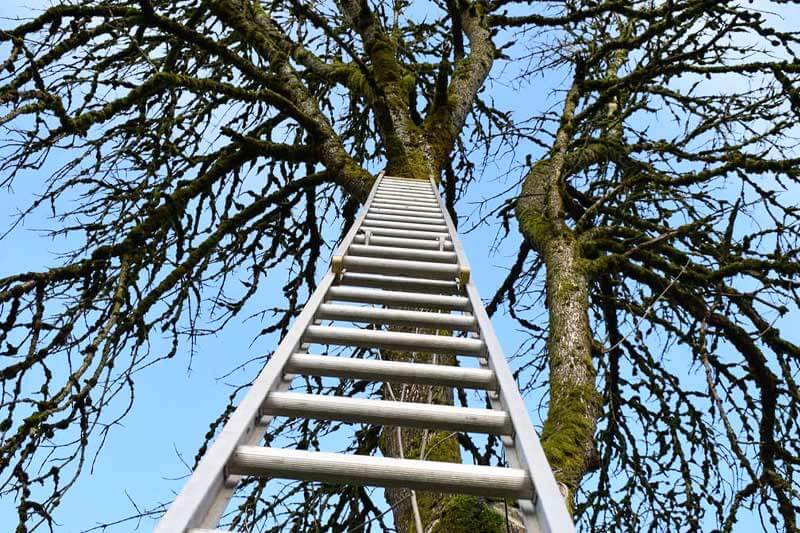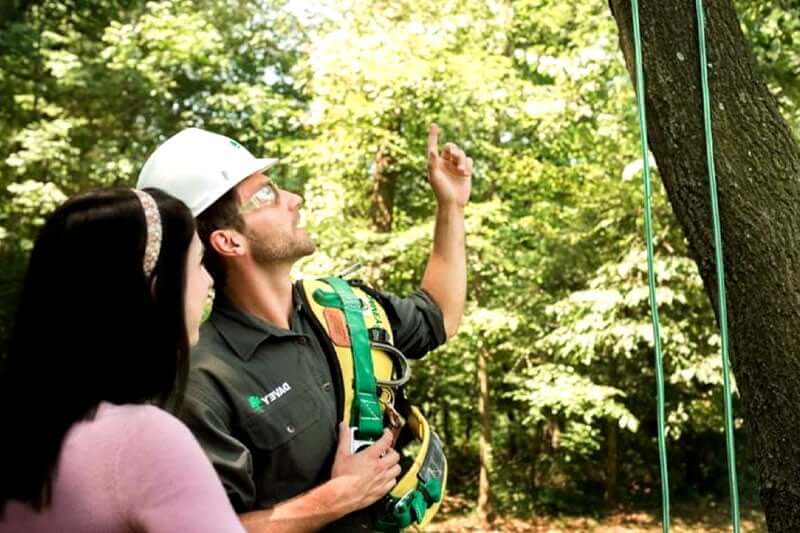Caring for trees carries inherent risks. Damage to your property is possible, as are injuries. Given that any injuries or damage occurring on your property could result in legal and financial difficulties for you, the best protection is to make certain the tree service provider carries adequate insurance.
A tree care service should have worker’s compensation insurance and general liability insurance.
- General liability insurance: this insurance will guarantee that you will be taken care of in case they accidentally damage your property.
- Worker’s compensation insurance: this will shield you from being held liable for any injuries that are sustained by the employees of the tree care company.
Here is what you should know about tree care insurance, why it is important, and what you should pay attention to.

What we cover
ToggleGeneral liability insurance
General liability insurance1 helps to cover the tree service in case any damage occurs as a result of their work.
Why should you care about whether they have general liability insurance?
Cutting, trimming, uprooting, and doing other types of tree work are inherently dangerous.
An accident happens
A tree or one of its major branches can fall on your roof. It can also fall on an innocent bystander. In order to be compensated for any loss that may occur as a result of an accident, you may have to sue the tree company.
Without general insurance, you lose
If the tree service does not have insurance, they may not be able to pay you even if you win the case.
Why? Chances are that whatever it is that you may be awarded is likely more than the company’s worth. And so since they can’t afford to pay you, you will end up with little to nothing.
With general insurance, you get compensated
But things would have been different if the tree service had general insurance. This is because their ability to compensate you wouldn’t matter because you would be claiming the amount awarded from the insurance company.
Therefore, you would have gotten your money, no matter the financial state of the tree service. General liability insurance is thus meant to protect you against financial loss in case of an accident.
Worker's compensation insurance
Before hiring a tree service, you should also ensure that they have worker’s compensation insurance because of the following reasons.
It will protect you from liability
Worker’s compensation insurance is designed to cover injuries sustained by employees. And so if an employee gets injured, this insurance ensures that they get compensated for any loss that occurs as a result of the injury.
So, why should you care?
Well, if an employee of a tree service sustains an injury while working on your property, and the company doesn’t have this insurance, you can be on the hook for any losses that may occur as a result.
You may be forced to pay their medical bills, cater for any loss of revenue, and even pain and suffering.
It is the law
While this may sound unfair to you, it is the law. And so before you let any company take care of your trees, you should ensure that they are not exposing you to any liability that you didn’t willingly sign up for.
Making sure that they have sufficient worker’s compensation insurance is one of the best ways to do so.
It shows that they are compliant with the law
In some areas, like Connecticut, any tree service that has more than one employee is required to have workers’ compensation insurance. In such places, failure to do so is illegal.
If you are going to work with a tree service, their compliance with the law is important.
It shows that they take their job seriously enough to avoid cutting corners. It also shows that they are a law-abiding company, something that often goes a long way towards boosting confidence in their professionalism and ability to deliver on their promises.
It shows that they care about their employees
Worker’s compensation insurance is designed to ensure that employees are taken care of in case something goes wrong. Therefore, if a tree care company doesn’t have it, that is a good indication of a company that doesn’t have their employees’ best interests at heart.
You wouldn’t want to work with someone who disregards the welfare of their employees to that extent.
What you should consider when evaluating the insurance of a tree service
After a tree service confirms that they are insured, you should evaluate the validity of their claims. Here is what you should do.

You should make sure that they have a certificate of insurance
When vetting tree care service providers, you shouldn’t just take their word when it comes to insurance. You should always verify that they actually have active policies and that these policies provide sufficient cover to cover any potential losses.
Request a CIO
The best way to do it is to request for a Certificate of Insurance (CIO). This document will have all the relevant details that you will need to verify their insurance status. It will have the policy numbers and financial limits.
Confirm the CIO’s validity
However, just because the service can produce a Certificate of Insurance doesn’t mean that everything is settled.
Some tree services have expired policies. Some even have fraudulent ones. And so to be sure that everything is in order, call the producer’s number which can be found on the CIO. Inquire about the validity of the policy numbers, the holders, and the limit amounts.
You should consider the coverage limits of the insurance
Having a valid insurance policy is not enough.
It should be enough to make things right
Since the main aim of insurance is to take care of things in case things go wrong, you also need to make sure that they have a policy that is adequate enough to make things right.
Therefore, you should always look for, confirm, and evaluate the coverage limits of the policies. Doing so will ensure that you have a strong enough buffer against liability or loss.
It should comply with the law
In some states, the law defines the minimum amount to which a tree service should be covered.
For example, in Missouri, tree services need to shield themselves from liability by taking policies that cover up to $1 million.
You should check the height clause
It is not enough that they should have an insurance policy. This is because they can have an insurance policy that is ineffective if they do work that is not covered under the policy.
One of the most important things in insurance for tree care is the working height clause. This clause usually stipulates the maximum height to which they can work and be covered under the policy.
And so if they are limited to working to a maximum height of 10 feet and your tree is 15 feet, then that policy is useless as far as coverage, for any losses that might result from the work that they are doing, is concerned. Therefore, this is something that you should pay attention to.
Use this free service to find an expert near you
If you need help planting or maintaining your trees, this site offers a free service that puts you in contact with qualified professionals in your area.
Here is how it works.
- You scroll to the top of the page and enter your Zip code.
- Answer questions about your needs and preferences
- Your details will be forwarded to three local experts.
- You will then receive a price estimate – in writing – for the job and some friendly advice.
IMPORTANT: There is no obligation to hire. This is a free tool and service to be used at your pleasure.

- Progressive Commercial, (2023) Tree Service Insurance | Progressive Commercial. <https://www.progressivecommercial.com/business-insurance/general-liability-insurance/> Accessed: 15-03-2024.














